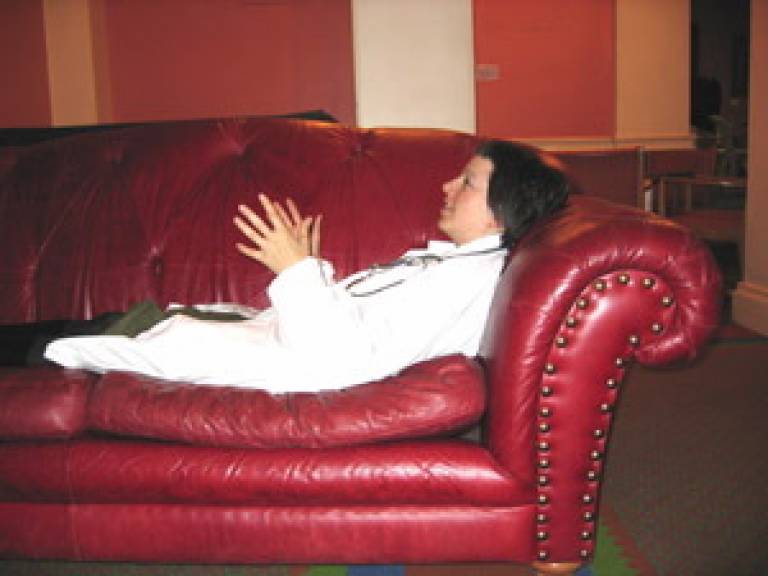Doctors on the couch
12 May 2005
UCL psychologist Professor Chris McManus claims that medical practitioners and students are perfect models for psychologists, but have so far been neglected.
 Over the past 25 years, Professor McManus
has conducted the only three large-scale studies of medical student
selection and training in the UK. He recently revealed his findings at
the British Psychological Society's CS Myers Lecture during their annual
conference, and will be published in a future of the Psychologist.
Over the past 25 years, Professor McManus
has conducted the only three large-scale studies of medical student
selection and training in the UK. He recently revealed his findings at
the British Psychological Society's CS Myers Lecture during their annual
conference, and will be published in a future of the Psychologist.
"Almost everything in which psychologists are interested - social, cognitive, educational, and occupational - can be found happening in medicine at a high level of performance and on a daily basis," says Professor McManus. "Much of my professional life has been spent using the techniques of psychology to study medicine, and in particular to study medical students and practitioners. The doctor-patient relationship is at the core of much medicine, but while patients are studied in depth there is little study of the other half of the equation."
In recent years, Professor McManus has become
increasingly interested in the effectiveness and happiness of doctors
and the reverse - stress and burnout. "There is simply no support for
the idea that some doctors are unhappy because they are too clever, too
able or too thoughtful for the sometimes mundane realities of daily life
as a physician," claims Professor McManus. "The brightest, best and the
most knowledgeable of doctors can always find much to learn from
patients."
In 1990, Professor McManus' team sent lengthy questionnaires to nearly 6,000 medical school applicants as soon as their applications were received. The successful candidates were subsequently sent questionnaires at key milestones in their careers, for example, just before their finals and at the end of their pre-registration house-officer (PRHO) posts. The doctors were contacted most recently in 2003 when they were senior house officers, specialist registrars or GPs
"If asked, most doctors will say that it is the workload of the PRHO
posts which is stressful. And yet, our study asked about working hours,
number of patients admitted, hours of sleep obtained when on call, and
so on. None of these measures of workload correlated with stress levels.
That result was so surprising that a major medical journal rejected our
study on the basis that the editor refused to believe that stress could
not be related to working conditions," said Professor McManus.
"The variation between stress is mainly a function of differences between doctors and not differences in working conditions. Stress has long been known to be related to personality, and in particular to the personality dimension of neuroticism. We soon found the same was true of our PRHOs and exactly the same correlations were found when we looked at the same group of doctors five or six years later when the doctors were in entirely different jobs."
Professor McManus found that emotional exhaustion was the main cause
of stress in doctors. "Being stressed or burned out today will affect
how an individual does things tomorrow. Emotional exhaustion makes
doctors stressed and stress makes doctors emotionally exhausted. More
controversial are the effects of depersonalisation; treating patients as
objects rather than people. Depersonalisation, while bad for the
patient, seems to decrease stress and can nevertheless be seen as a
response that for the doctor is adaptive, reducing the immediate
likelihood of stress responses. A sense of achievement is good for a
doctor, but it is potentially bought at the price of greater risk of
emotional exhaustion and stress."
Image: Dr Jenny Gimpel.
To find out more about Professor McManus or the Psychologist use the links below.
 Close
Close

